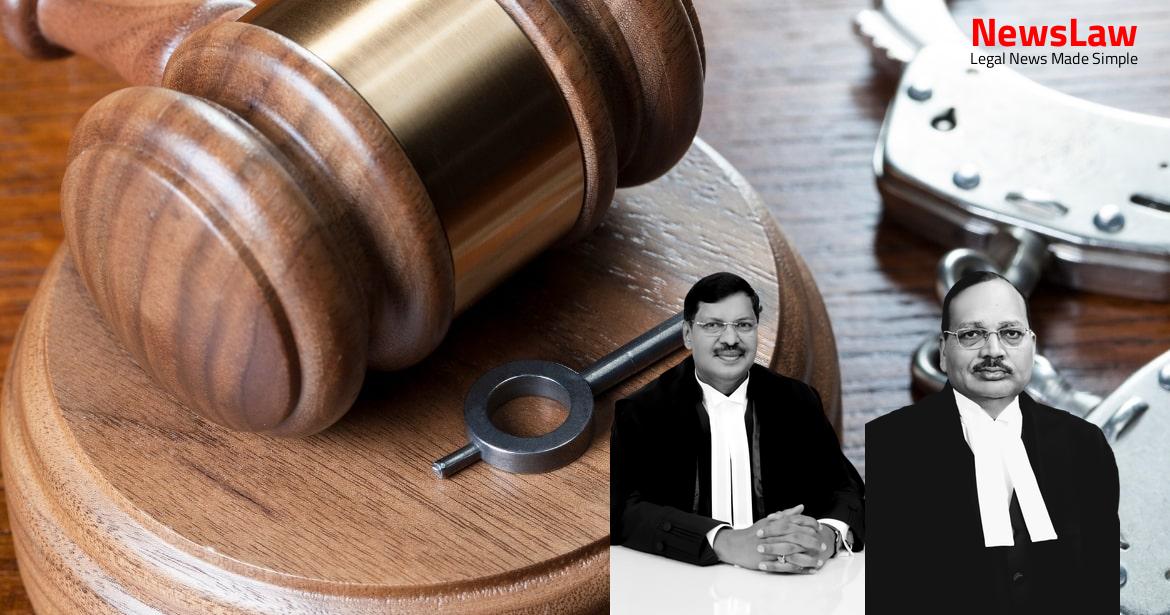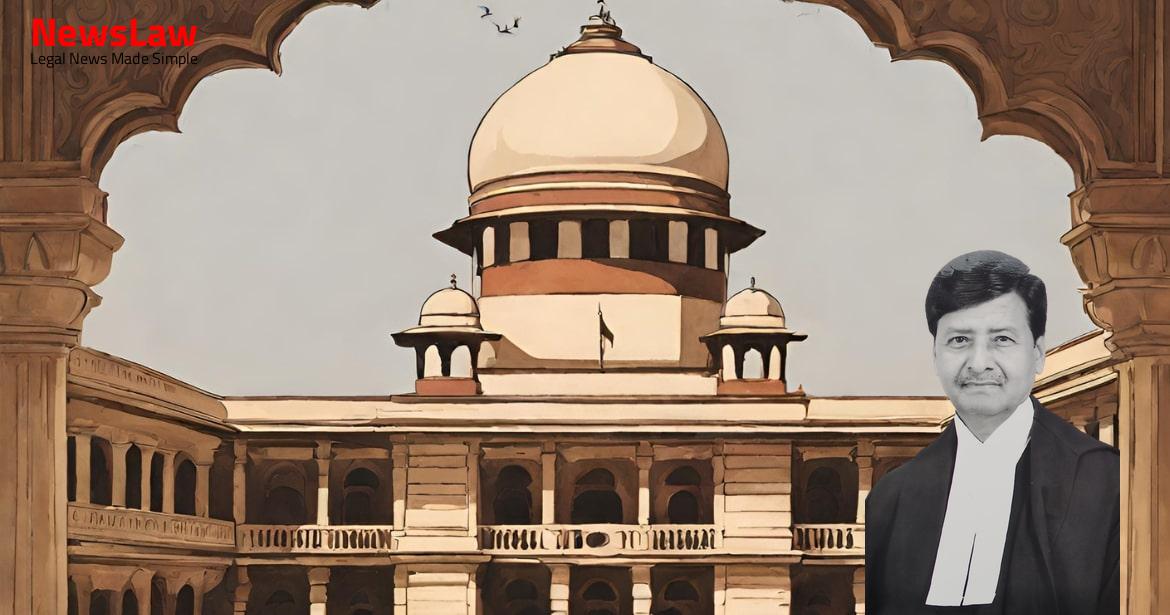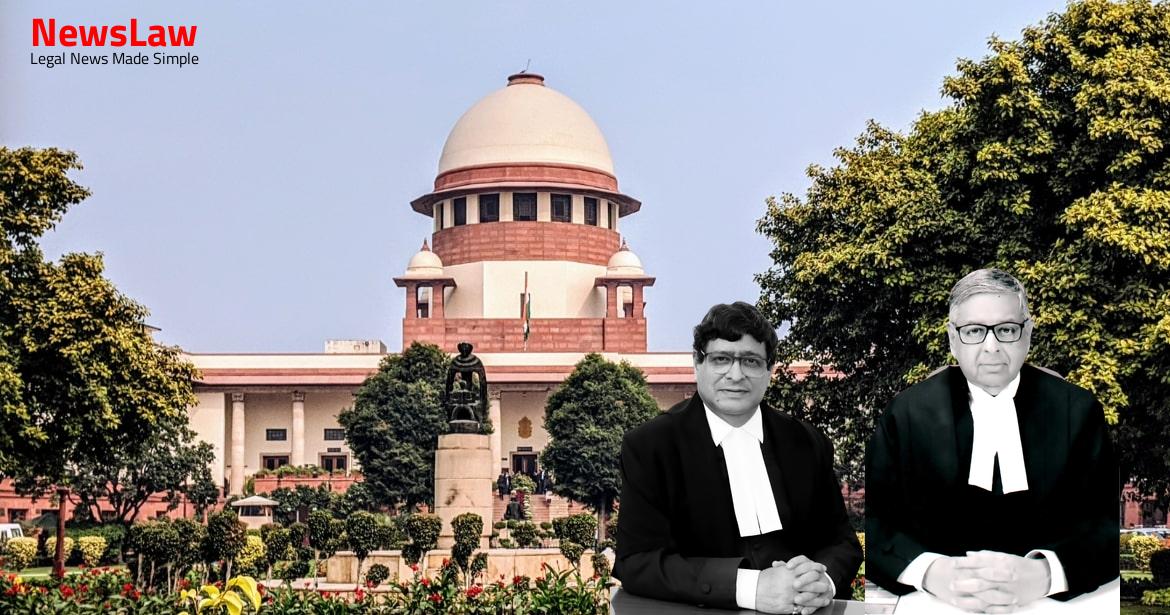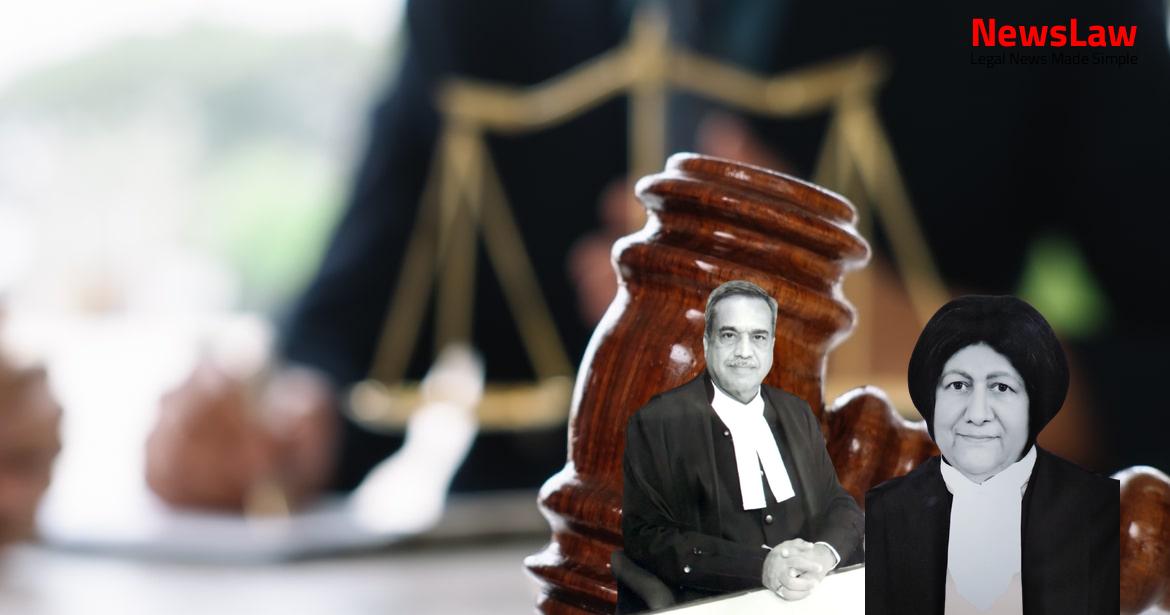In a landmark ruling, the Supreme Court of India has provided a judgment regarding the selection process and evaluation method in the recruitment for Haryana Judicial Service. The case reflects on the concerns raised by petitioners and the arguments presented by the respondent. This judgment delves into the intricacies of the selection process and aims to ensure fairness and transparency in the recruitment system. Stay informed with the latest updates on this pivotal legal decision.
Facts
- The examination comprised of three stages – Preliminary Examination, Main Examination, and Viva Voce.
- Marks obtained in the Preliminary Examination were not counted towards final results, leading to a lack of holistic view for evaluators.
- The Main Exam consisted of five papers – Civil Law I, Civil Law II, Criminal Law, English, and Hindi.
- Observations by Justice Sikri on the evaluation method: Civil Law, English, and Hindi papers were appropriately evaluated, while the evaluation method for the Civil Law I paper had identified issues.
- Main Exam had a passing rate of only 0.702%, with a majority of candidates (99.298%) failing.
- Justice Sikri randomly selected scripts of qualified candidates and petitioners to assess the evaluation method.
- Justice Sikri found that the paper was not difficult but too lengthy, leaving limited time for candidates to answer each question.
- Examination conducted in accordance with Punjab Civil Services (Judicial Branch) Rules, 1951, as applicable to Haryana.
- Selection process involved qualifying in written exams and viva voce, with a minimum marks requirement for each stage.
- Candidates who qualified for the Main Exam were shortlisted based on merit in respective categories, with 9 candidates declared fit for the Viva Voce.
- Viva voce treated as the sixth paper of 200 marks in the Main Exam.
- Various security measures were in place, including concealed roll numbers on answer sheets.
- Evaluation method involved multiple evaluators marking different questions in each answer script, aiming for uniformity.
- Evaluators expected detailed answers covering all aspects, leading to strict marking in Civil Law I.
- Candidates who covered all aspects briefly were not awarded good marks, indicating a lack of consistency in evaluation.
- Justice Sikri assessed the time constraints for candidates in answering questions, noting the limited time available per question.
- Factual background of the case related to the recruitment process for Civil Judge (Junior Division) posts in Haryana Civil Service (Judicial Branch) – 2017.
- Re-examination conducted due to question paper leak, with observations made on the selection process and evaluation method by Justice Sikri.
- Justice Sikri observed that suitable marks were not awarded even when answers were perfect
- He suggested three alternatives to remedy the situation: Grace Marks in Civil Law-I, Grace Marks in both Civil Law-I and Civil Law-II, and Moderation by giving 35 marks to all candidates
- Information obtained through RTI revealed that there was no marking criteria or model answer key, and performance of candidates depended solely on the discretion of examiners
- The High Court’s remedy of paid re-checking without disclosing marks of non-qualified candidates was deemed ineffective
- A total of 74 candidates (42 General Category + 23 Reserved Category) would qualify for Viva Voce based on the suggested alternatives
- Examiners expected long answers, questions were too many, and marking was extremely strict
Issue
- Whether the marks obtained in the Main Exam should be disclosed before the viva-voce is conducted is a key issue for consideration.
- Whether re-valuation of Civil Law-I and Civil Law-II papers is necessary as suggested by Justice Sikri’s report.
- Key questions that arise for consideration include whether the selection process and evaluation method are unjust, arbitrary and in violation of Article 14 of the Constitution and whether moderation of marks (grace marks) is needed in the present circumstances.
Also Read: CRPF Act: Validity of Rule 27 for Compulsory Retirement – Case of Head Constable vs. CRPF
Arguments
- Petitioners are seeking shortlisting of candidates for viva-voce to avoid vacant seats, as many candidates are already selected for other State Judicial Services.
- Petitioners emphasize the need for transparency in the selection process, citing lack of rules for grace marks and the absence of appointments in Haryana Judicial Service since 2014.
- Petitioners propose alternatives like awarding grace marks or re-evaluation of answer scripts to increase the number of candidates qualifying for viva-voce.
- They oppose conducting a fresh examination due to candidates’ past hardships and multiple appearances in the process.
- Petitioners argue for disclosure of candidate names and subject marks to ensure fairness and suggest using scientific techniques for moderation and scaling.
- Inconsistencies in marking and fears of low viva-voce scores affecting eligibility are raised by the petitioners.
- The petitioners advocate for moderation techniques to ensure deserving candidates are selected and argue against re-evaluation due to absence of provision in Recruitment Rules.
- The respondent strenuously opposed the petitioners’ claim.
- Justice Sikri did not find any fault or illegality in the selection process.
- The selection process was conducted fairly and impartially under strict administrative vigil.
- The respondent argued that there is no need for the Court to interfere with the selection process as no fault was found.
Also Read: DAMEPL vs. DMRC: Curative Petition and Arbitral Award Restoration
Analysis
- Justice Sikri suggested three alternatives for awarding grace marks
- The prayer for addition of 50 grace marks was deemed not feasible
- Uniformity in valuation of answer-scripts is crucial in large-scale examinations
- Different examiners may exhibit variability in marking, leading to the need for moderation
- The moderation procedure ensures consistency in marking across examiners
- The examiners’ subjectivity or variability is minimized through the moderation process
- Reviewing the valuation process and ensuring uniformity is essential
- Alternative II of Justice Sikri’s report was adopted for awarding grace marks
- Transparency in evaluation methods is necessary to maintain credibility
- Examiners must follow agreed norms in marking to ensure fairness and consistency
- The need for viva-voce as an integral part of the selection process was emphasized
- Requests for re-evaluation by an independent committee were not accepted, as the marking was deemed strict but not discriminatory
- The Court considered the challenge to the examination process in relation to moderation and scaling.
- Moderation was deemed appropriate to exclude the effect of examiner variability, especially when there is ‘reduced valuation’ by a strict examiner and ‘enhanced valuation’ by a liberal examiner.
- Scaling was considered applicable only when differentiation exists amongst subjects opted by candidates, not in cases where subjects are uniform.
- The Court highlighted the need for a suitable scientific technique like scaling or moderation, similar to the methods used by UPSC and UPPSC for administrative and judicial appointments.
- The Court declined to approve the scaling method for Judicial Service Examinations due to the requirement for candidates to take the examination in respect of all subjects without any option.
- Examiner variability, also known as the ‘hawk-dove effect’, plays a significant role in assessing candidates through written examinations and interviews for proper selection.
- The relevance of moderation as an ideal solution in situations where candidates have no choice in selecting subjects was emphasized.
- Instances from previous cases like Lila Dhar v. State of Rajasthan and Taniya Malik vs The Registrar General of Delhi High Court were cited to support the importance of proper selection methods and the impact of examiner variability.
- The Court reiterated the view that if suitable candidates are not found, the employer is not obliged to fill up the posts, emphasizing the importance of merit-based selection processes in judicial recruitments.
- The acceptance of the plea of the petitioners to consider their written examination scores only, without an interview, would introduce bias in the impartial evaluation process during viva-voce assessments.
- This acceptance would contradict the court’s decision in the case of Ashok Kumar Yadav and Others v. State of Haryana.
- While written exams test knowledge and intellectual abilities, interviews are essential for evaluating a candidate’s overall intellectual and personal qualities crucial for a judicial position.
Decision
- Punjab and Haryana High Court directed to award grace marks in specific papers for 2019 Examination candidates
- Fresh results of Main (Written) Examination of Civil Judge (Junior Division) to be prepared within two weeks
- Selection process to be completed before February 15, 2020
- Vacant posts to be advertised and filled in accordance with the timeline set by the court
- All pending applications disposed of as per the order
- Bias in the minds of interviewers to be eliminated for fair selection process
Case Title: PRANAV VERMA Vs. THE REGISTRAR GENERAL OF THE HIGH COURT OF PUNJAB AND HARYANA AT CHANDIGARH
Case Number: W.P.(C) No.-000565 / 2019



